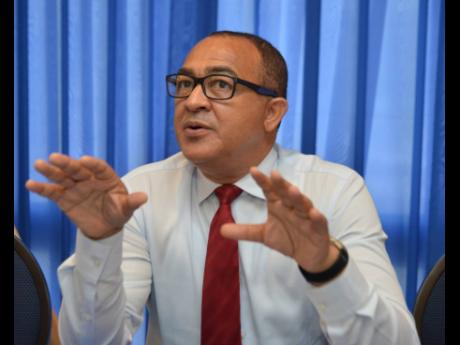Med equipment suppliers want talks after flagging ‘impractical’ elements of maintenance policy
Hospital equipment service providers have called for more consultation before the Ministry of Health and Wellness finalises its Medical Equipment Maintenance Management Policy after flagging clauses they described as “impractical”.
The policy, which was signed in August between the ministry and its four regional health authorities, aims to guide maintenance practices for medical equipment used in patient diagnosis and treatment, and is expected to be implemented in April of next year.
However, during a discussion session about the policy on Tuesday, the suppliers shared concerns about the additional requirements for staff training, parts replacement, and maintenance monitoring, arguing that although it is being touted as a partnership, they were not consulted in the process.
Permanent secretary in the ministry, Dunstan Bryan, outlined that under the new policy, every contract for a major piece of equipment will require the service provider to provide a level of training that is “equivalent to the manufacturer’s in-house field technician”. Additionally, he said maintenance agreements will be required for every piece of equipment.
“What this is saying to us is that we want to ensure that we maximise the uptime and reduce the downtime based on any sort of routine maintenance or routine issues relating to maintenance,” he said.
Also, he said the policy will now requires every contract to contain a set of replacement parts that suppliers must have in stock, and be provided in the agreed timeframe. Further, the contracts will now have a formal schedule of maintenance.
Bryan emphasised that these requirements will be accompanied by a strong monitoring framework, facilitated by a computerised management system.
Standard too high
However, pointing specifically to the need to provide hospital staff training, co-manager of Jamaica Hospital Supplies, Michael March, noted that the idea is not novel, but said the standard that is expected is not practicable.
“Let us look at the hospital, let us look at the range of the equipment that’s bought in the hospital, the level of experience needed to service that equipment, the different brands available throughout the hospitals. Think of your biomedic teams going to workshops for each of those medical equipment, when will they find time to do the work?” he asked.
Lainworth Walker, technical director of Medical Link, blamed “lack of knowledge” for the “many areas” of flaws he found in the new policy.
He indicated that the cost of the service agreements could be channelled elsewhere and facilitate better efficiency.
“The money you are spending on service-level agreement, if that is money is put into proper specifications so that you get a quality product from the start, then you don’t need to spend that money,” he said.
This issue was also a concern shared by Lurine Gordon-Hylton, managing director of Alpha Med Global.
“I find that to be a challenge. Most times, the specifications are not clear, you don’t know what quality equipment you are looking for, the standard, it’s very basic or generic,” she said.
Meanwhile, Walker also pointed out that the costs for maintenance are often seen as exorbitant by the health authorities.
And according to him, not only are the suppliers often unable to provide the level of training now required under the policy, as they are not authorised by their factories to do that, but that the health authorities had previously not taken advantage of training opportunities provided by suppliers.
“So what have we done in the past? We have included the cost to send your persons to our factory facilities to get the training, you do not take it up. Only on one instance have you taken it up, where we have made arrangements every year, we have an opening for two to three of your technicians. All you need is to find the airfare. The last time, no one took it up. None of the four regions,” he said.
Meanwhile, Health Minister Dr Christopher Tufton conceded that it would not be practical to train in-house people to do all the service. And while stating that some amount of consultation surrounding the policy did take place, he acknowledged that it can be improved with further talks.
“Some of the issues which you have raised, I appreciate, and what I am suggesting ... is that in a new dispensation, a lot of what you say is not happening now will need to happen in order for the partnership to be strengthened,” he said.

